12-02-2020
Maksut Askar and the new Turkish cuisine explained in five dishes
Lunch at Neolokal, one of the most interesting new examples of Istanbul’s new wave. Between the Mediterranean Sea and Mesopotamia
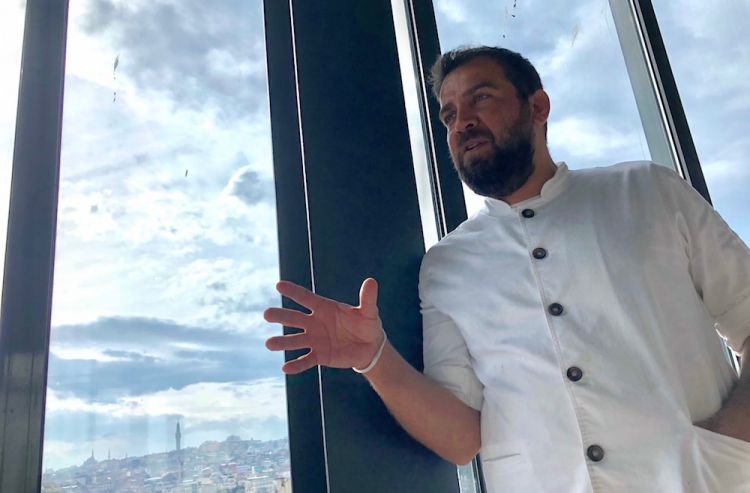
Maksut Askar, 43, Turkish of Arab descent, since almost 6 years ago chef at Neolokal in Istanbul, one of the most admired restaurants in Turkey
The geography of fine dining is widening its horizons more and more. Even in countries whose identity seemed to be too popular for them to reach more refined standards. This happened at the beginning of the millennium, in a totally natural and immediate way, in countries such as Denmark, Mexico or Peru. It happened more gradually in other countries with a durable street soul, such as Thailand or Singapore.
It’s finally happening in Turkey too, a country whose first winds of fresh air we had started to notice around ten years ago, when Mehmet Gürs (restaurant Mikla, Istanbul) showed on the stage of Identità Golose dozens of varieties of pistachios, never seen before, representing a biodiversity unknown outside the Turkish borders. It was then that the “New Anatolian Cuisine” was first used and a decade later, many interesting followers have joined the pioneer.
Only one month ago, Fatih Tutak returned home. This promise had travelled around half of Asia and instead of being charmed by the sirens of Japan or Thailand, he opened Turk, one of the most interesting recent projects (see Carlo Passera’s feature), also thanks to the courage he’s shown: it’s not like there is now an ongoing reforming movement in Turkey, so to speak. There’s Nicole, an interesting project of trans-Mediterranean cuisine. And there’s Neolokal, a restaurant we had the opportunity to observe closely for 24 hours, thanks to chef Askar’s invitation.
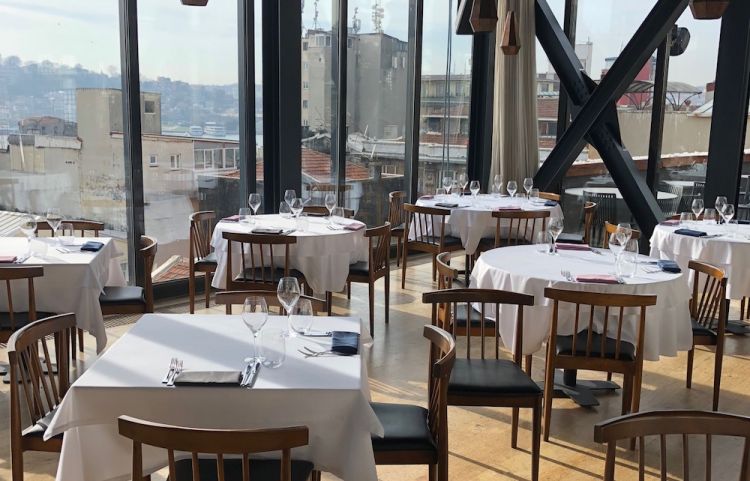
Neolokal is on the first floor of the Salt Galata Building, a magnificent Ottoman building from the late 19th Century, which once hosted a bank. On the ground floor, there’s a bar where you can drink a magnificent Turkish coffee, and other traditional delicacies
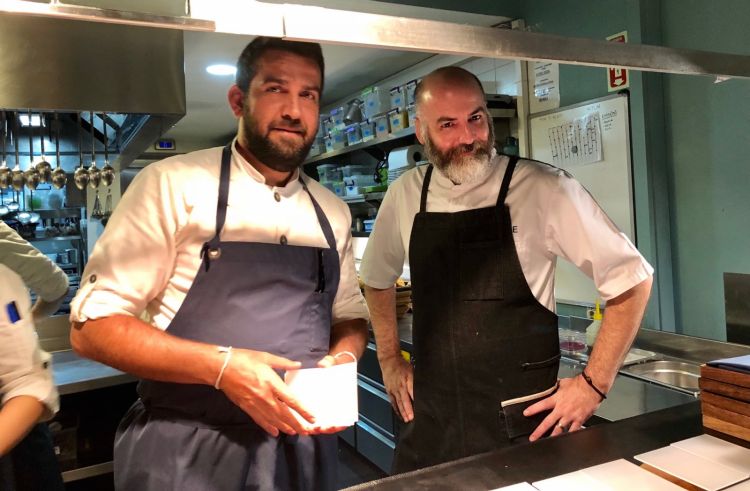
Aksar with American Tim Butler, from Portland, based in Bangkok. Their 4-handed dinner at Neolokal, a few days ago, was sold out
Maksut is originally from the province of Hatay, on the border with Syria. A young man of Arab descent, who doesn’t speak Arabic but understands it very well. A cook who perfectly explains, in Turkish and English, the sacred fire that moves him with a calm and prophetic talk: «Those who don’t take care of tradition, cannot have a future». «We must humbly express our respect for the earth». «We’re a timeless restaurant, and this is essential so that we can renew ourselves constantly». «We must convey our memory to the new generations, without making mistakes». «I get angry only once a year». «Those who work with me don’t want to leave because I respect each person who works here».
These statements are interesting in their own right, but it would be meaningless if the dishes did not confirm the intentions.
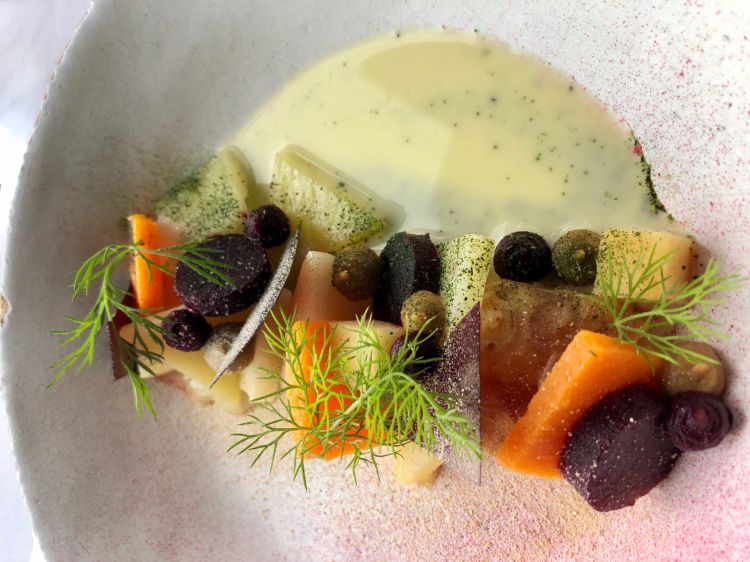
Root vegetables
The opening dish at Neolokal is vegetarian and depicts the season as well as climate change, which is almost an obsession for the chef. It only includes root vegetables, cooked separately but with the same process, called Zeytinyagli, which means they’re sautéed in extra virgin olive oil. In our case these were quince apple, celeriac, pumpkin, black carrot, chards. The prevailing flavour of the olives comes from an emulsion added at the end, when serving the dish: it’s made of the leftover olives that remained in the pan. It’s basically a Turkish version of Aimo Moroni’s Zuppa Etrusca. The raw materials are the result of the tireless work of the chef with 54 rather active local delegations of Slow Food
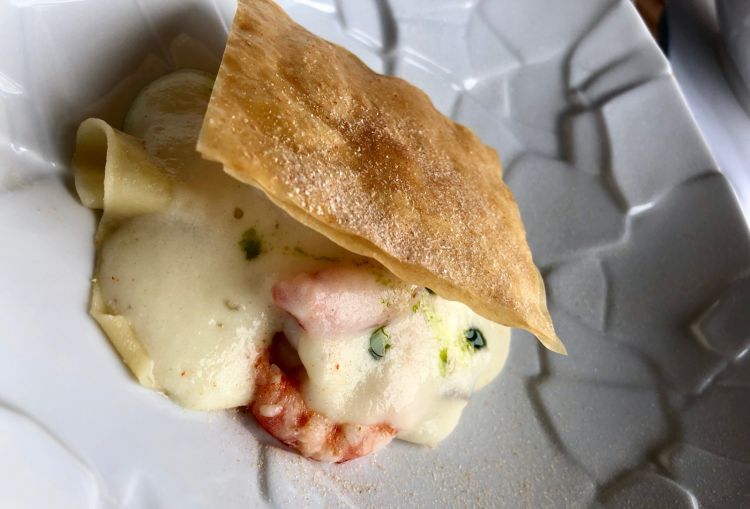
Su böreği
Literally, “water meatball”, it’s one of the most popular versions of börek, the ubiquitous traditional Turkish dish. It’s a very thin pastry known as phyllo or yufka. The layers of pastry are quickly boiled in a large pan and in between they put a delicate sauce made with fresh cheese (usually feta) and parsley (as an alternative, minced meat, onion and tomato sauce). Underneath the layer there are also prawns and small potatoes
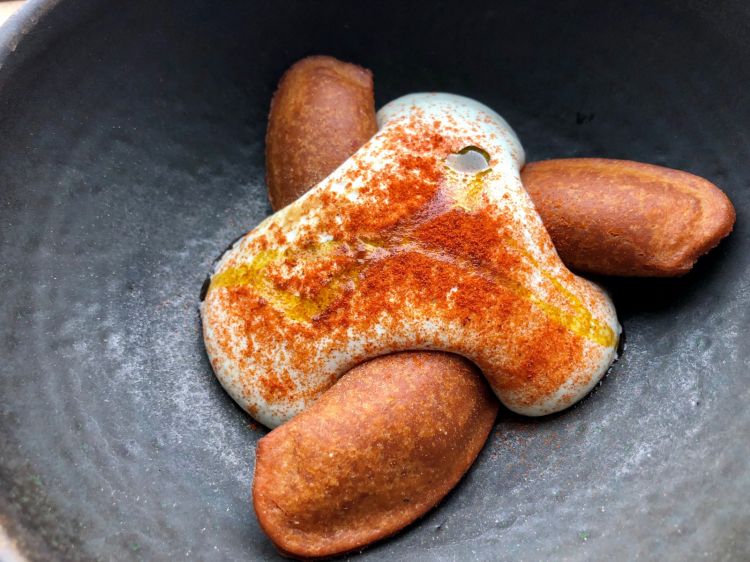
Dumpling İçli Köfte
It’s a recipe from South-East Turkey, "in fact from Mesopotamia, a region that unites people with the same roots, separated by absurd political borders". These dumplings are made with a bulgur dough, filled with minced meat, walnuts and pine nuts. First, they bake them, then they toss them in the pan. The soft mousse is yogurt with mint, lemon, garlic oil and paprika. A perfect puzzle, even for the eye of ex-artist Maksut. In general, Neolokal’s menu is an invitation to share, a model that has always been part of the dining habit of the Turks
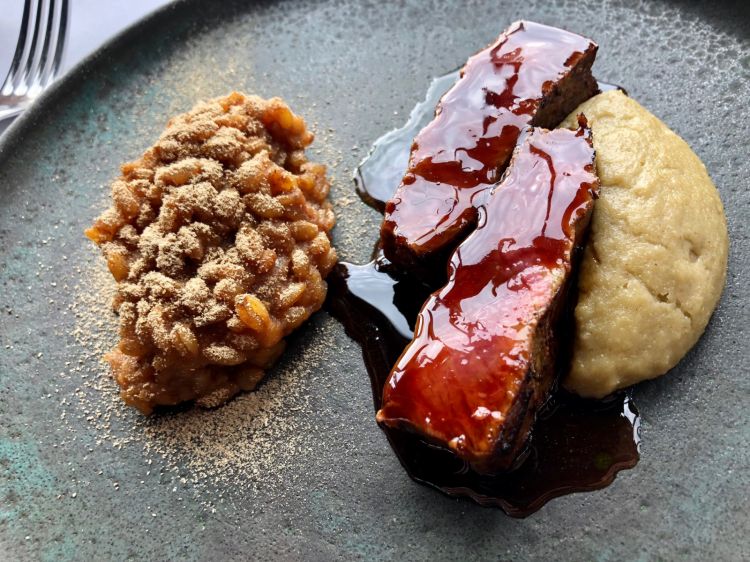
Lamb and freekh
A saddle of lamb marinated in the style of a kebab (yogurt, spices and soda) and then seared and baked in the oven. It’s served with Uveyik and Freekeh Mihlama. The first (to the left) is an ancient grain variety produced by Husein Amca, a farmer who doesn’t intervene in the fields, a choice also taken by Japanese Masanobu Fukuoka, a pioneer of natural agriculture. When you bite it, it’s al dente, despite 7 hours of cooking with apples and onions. Mihlama is instead a recipe from the Black Sea, very similar to Italian polenta, but made not with corn but with freekeh, a very ancient green variety of grain, rather popular in this area of the Mediterranean Sea. They add butter and then lamb broth and Izmir Tulum, a cheese from the Aegean Sea. A main course that multiplies the textures and joins sweet and sour with nonchalance, a prerogative of Turkish cuisine
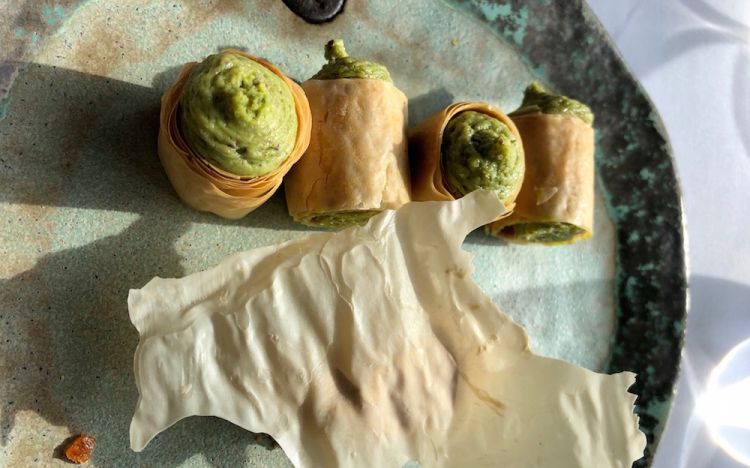
Baklava
Is the interpretation of Aksar of the famous cake made with phyllo pastry, honey and nuts, which was born between Gaziantep, in the south east of Turkey, and Aleppo, now in Syria, two cities that were once under the same roof of the Ottoman Empire. A dessert that requires great expertise with yeast and pastries
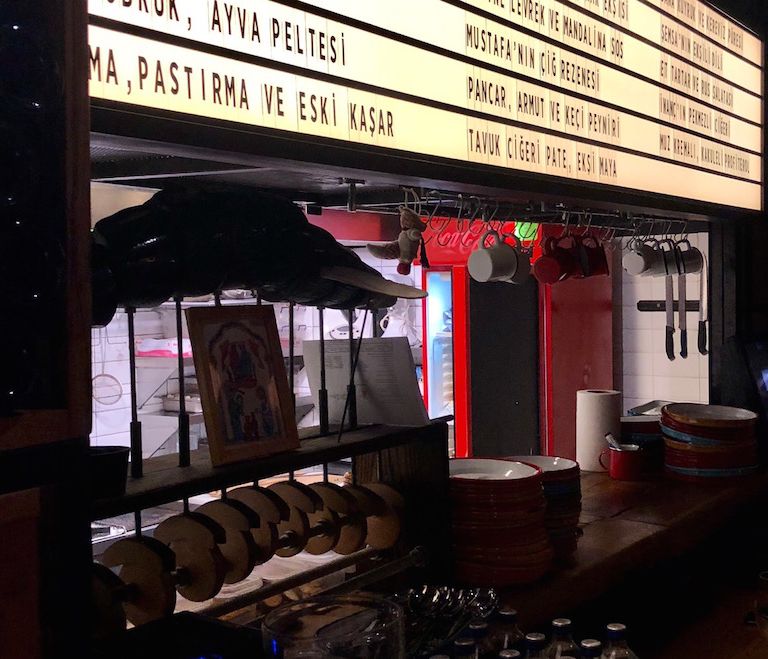
Only a few weeks ago Maksut Askar opened Foxy in Karakoy, "the first wine bar offering natural wines in Turkey". In the wine list at Neolokal he quotes a passage from the Genesis: the origin of the vine is connected with Noah, who planted a vineyard on the seventh day of the seventh month of the Great Flood. Autochthons grape varieties – white Cakal Uzumu, Calkarazi, Emir or red Acikara, Barburi, Horoz Karasi, Papaskarasi - are all worth discovering
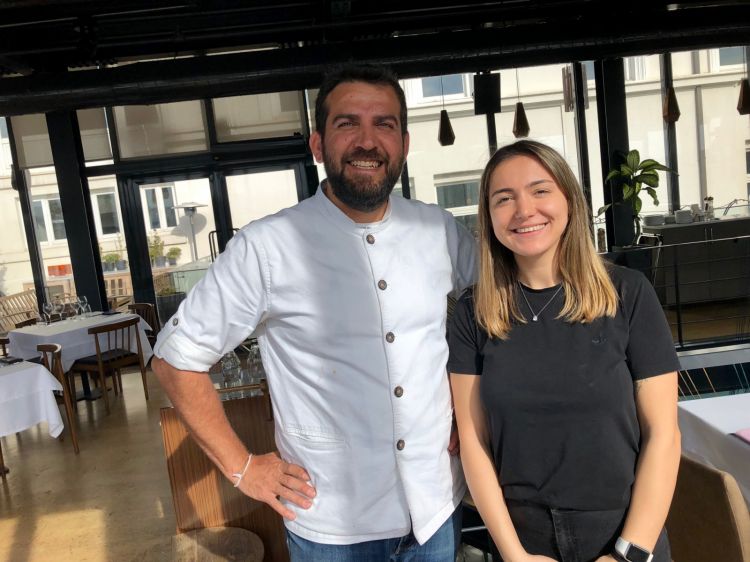
With Kardelen Soyalp, who works with Askar in the research and development at Neolokal. The team at Maksut only includes Turks. "We all have a right to make mistakes", the cook explains, "we nourish ourselves with our imperfections"
Translated into English by
Slawka G. Scarso
Zanattamente buono
Gabriele Zanatta’s opinion: on establishments, chefs and trends in Italy and the world
born in Milan, 1973, freelance journalist, coordinator of Identità Golose World restaurant guidebook since 2007, he is a contributor for several magazines and teaches History of gastronomy and Culinary global trends into universities and institutes. Author of "Cracco in Galleria" (Phaidon e L'ippocampo) and "Contemporary Milanese Cooking" (Guido Tommasi). Instagram @gabrielezanatt
Author's articles list